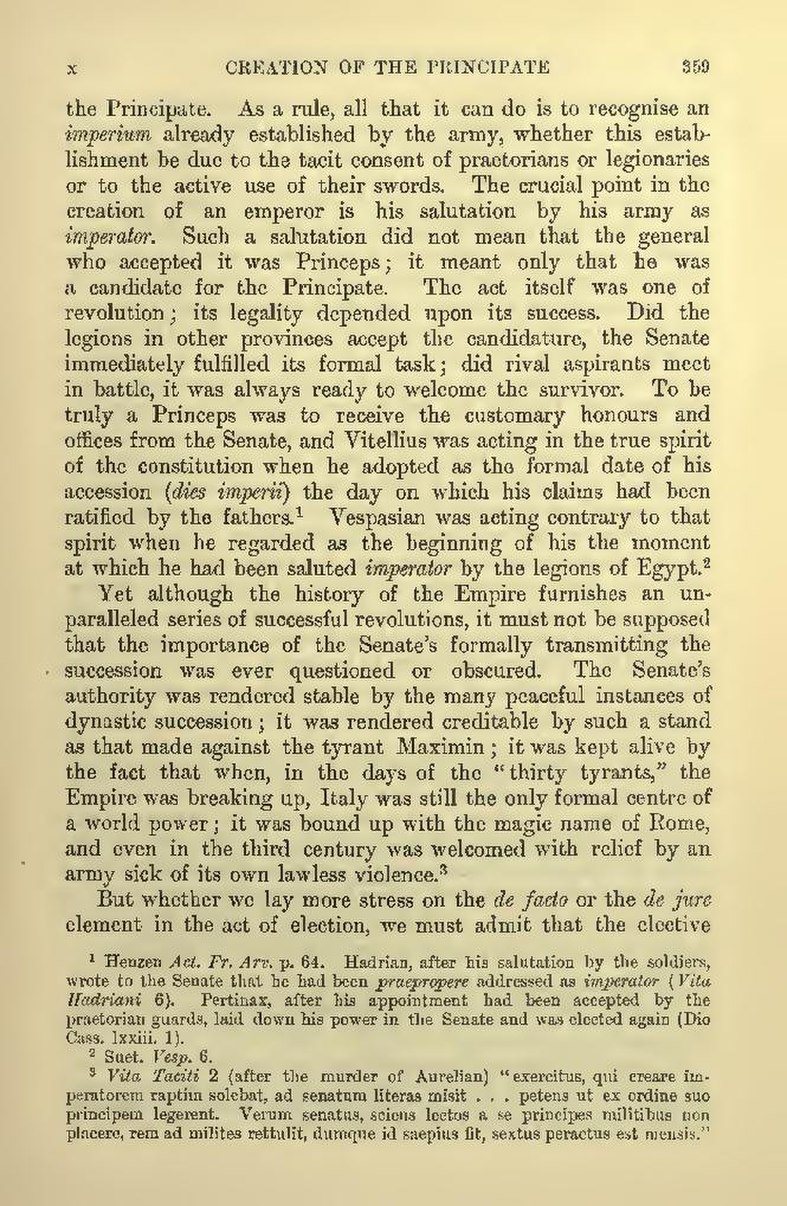the Principate. As a rule, all that it can do is to recognise an imperium already established by the army, whether this establishment be due to the tacit consent of praetorians or legionaries or to the active use of their swords. The crucial point in the creation of an emperor is his salutation by his army as imperator. Such a salutation did not mean that the general who accepted it was Princeps; it meant only that he was a candidate for the Principate. The act itself was one of revolution; its legality depended upon its success. Did the legions in other provinces accept the candidature, the Senate immediately fulfilled its formal task; did rival aspirants meet in battle, it was always ready to welcome the survivor. To be truly a Princeps was to receive the customary honours and offices from the Senate, and Vitellius was acting in the true spirit of the constitution when he adopted as the formal date of his accession (dies imperii) the day on which his claims had been ratified by the fathers.[1] Vespasian was acting contrary to that spirit when he regarded as the beginning of his the moment at which he had been saluted imperator by the legions of Egypt.[2]
Yet although the history of the Empire furnishes an unparalleled series of successful revolutions, it must not be supposed that the importance of the Senate's formally transmitting the succession was ever questioned or obscured. The Senate's authority was rendered stable by the many peaceful instances of dynastic succession; it was rendered creditable by such a stand as that made against the tyrant Maximin; it was kept alive by the fact that when, in the days of the "thirty tyrants," the Empire was breaking up, Italy was still the only formal centre of a world power; it was bound up with the magic name of Rome, and even in the third century was welcomed with relief by an army sick of its own lawless violence.[3]
But whether we lay more stress on the de facto or the de jure element in the act of election, we must admit that the elective
- ↑ Henzen Act. Fr. Arv. p. 64. Hadrian, after his salutation by the soldiers, wrote to the Senate that he had been praepropere addressed as imperator (Vita Hadriani 6). Pertinax, after his appointment had been accepted by the praetorian guards, laid down his power in the Senate and was elected again (Dio Cass. lxxiii. 1).
- ↑ Suet. Vesp. 6.
- ↑ Vita Taciti 2 (after the murder of Aurelian) "exercitus, qui creare imperatorem raptim solebat, ad senatum literas misit . . . petens ut ex ordine suo principem legerent. Verum senatus, sciens lectos a se principes militibus non placere, rem ad milites rettulit, dumque id saepius fit, sextus peractus est mensis."
